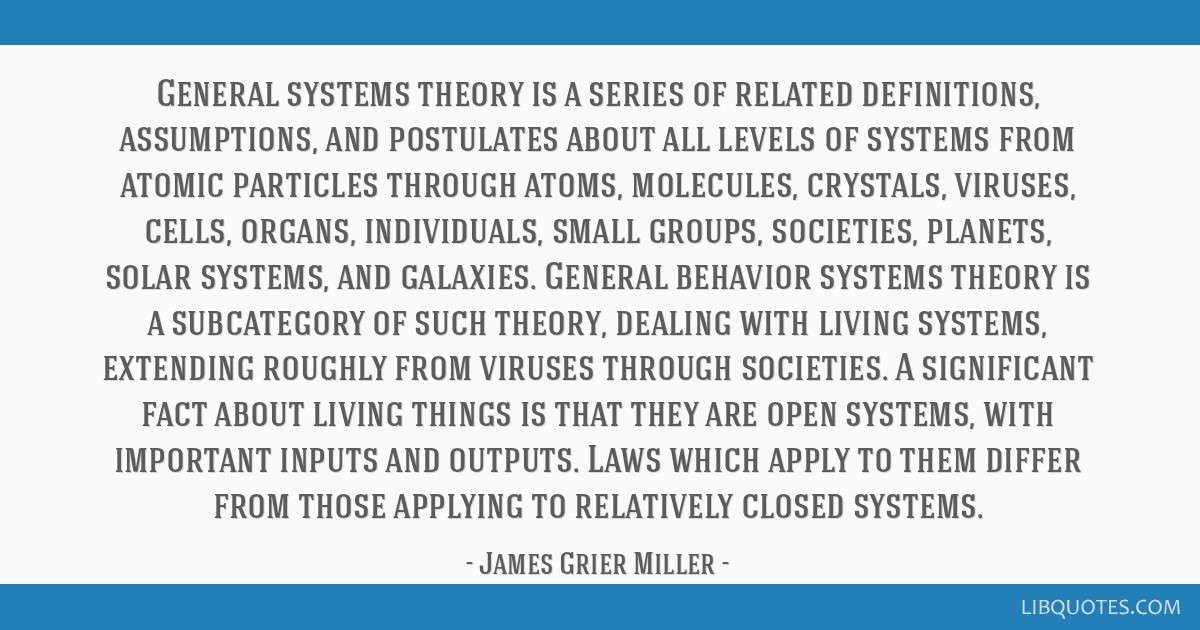General systems theory is a series of related definitions, assumptions, and postulates about all levels of systems from atomic particles through atoms, molecules, crystals, viruses, cells, organs, individuals, small groups, societies, planets, solar systems, and galaxies. General behavior systems theory is a subcategory of such theory, dealing with living systems, extending roughly from viruses through societies. A significant fact about living things is that they are open systems, with important inputs and outputs. Laws which apply to them differ from those applying to relatively closed systems.
Miller (1956) "General behavior systems theory and summary". In: Journal of Counseling Psychology. 3 (2) 120-124. Cited in: Francis Ferguson (1975) Architecture, cities and the systems approach. p. 12























